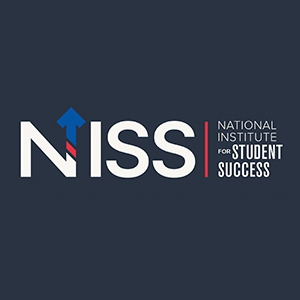National Institute of Student Success Awards $1 Million to FSU to Enhance Student Success

FAYETTEVILLE, N.C. – Fayetteville State University is set to receive a $1 million grant from the National Institute for Student Success to enhance student success and increase enrollment, retention and graduation outcomes.
The NISS is an organization that seeks to assist education institutions with identifying unintentional barriers that hinder student success using data to identify and understand the barriers and develop corrective actions.
“We want every student to thrive at FSU and graduate prepared to transition from academic success to career success,” said Monica Leach, Ed.D., FSU provost and senior vice chancellor for academic affairs. “Because our commitment is to a student-first culture, securing grants like this allows us to identify and fill gaps for a better student experience and better long-term outcomes.”
The grant funding will create three positions to work with students from admission to graduation looking to eliminate barriers for a student’s degree completion. It will also fund roles as internship champions to increase paid internship opportunities, supplemental instructors to improve student performance in core courses such as math, English, Spanish, and introductory business courses and invite alumni to provide guidance on using their degrees.
Pamela Baldwin, Ed.D., associate vice chancellor for student success and enrollment management, Cierra Griffin, Ed.D., executive director for adult learners, transfer and military students, led the NISS Diagnostic process that produced 4 institutional barriers against student succuss and developed corrective actions.
“We’ve taken great strides to prioritize student success academically in high-demand, high-paying career fields and connecting them with internships and post-graduation job opportunities. This opportunity provides the ability to improve pathways to degree completion and career readiness,” added Baldwin.
Through the application and diagnostic process, NISS recommended four focal areas of improvement.
- Create structured programming and processes that connect academic pathways and career opportunities, with a particular focus on the first and second years.
- Systematize the use of academic data to identify courses with high non-pass rates, direct support where they are most needed, and assess the effectiveness of course and program design to improve academic outcomes.
- Coordinate student communications and scale the use of the chatbot to prioritize and direct information to all students in a timely, proactive, and personalized manner.
- Standardize academic advising systems and protocols to ensure students receive consistent, proactive support across all advising units and colleges.
